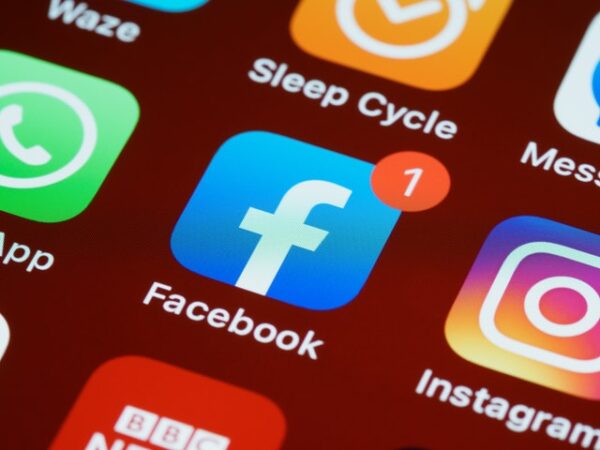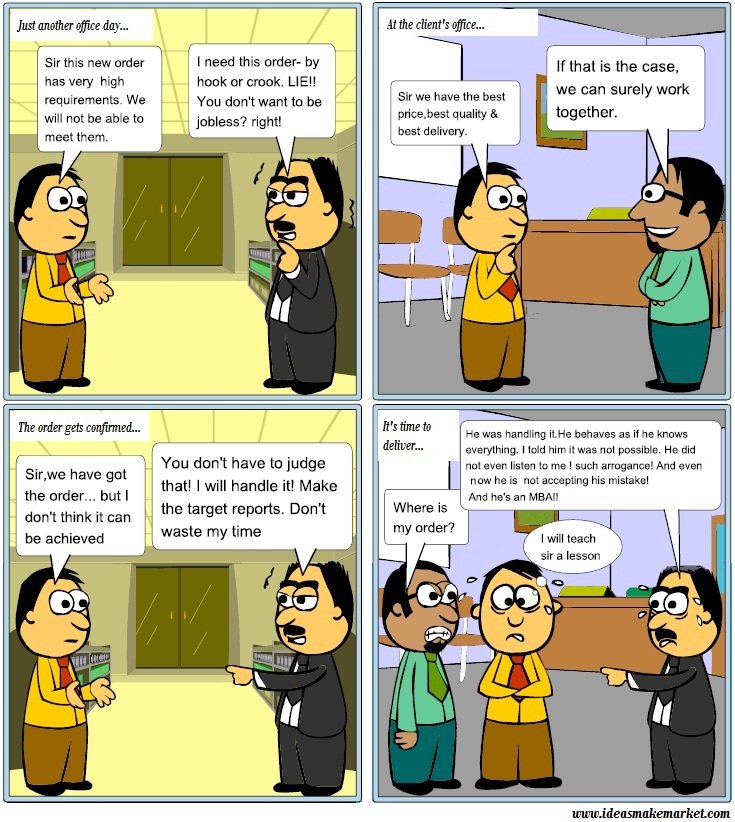The Federal Trade Commission (FTC) has recently accused Facebook of breaking antitrust law by acquiring smaller social media startups and dominating the industry and in creation of a social media monopoly. Anti-trust laws are meant to preserve competition in any market by protecting startups and ensuring that customers have a choice for service and that market dynamics define the offerings. There are three laws which protect such anti-competition activities in USA : The Sherman Act, The Clayton Act and The Federal Trade Commission Act. However what companies like Facebook is doing is that by continuously acquiring newer firms, they want to retain the numero uno position in the space. Instead of creating a value offering that makes customer use it, it is focused on buying firms that pose any threat to it.

Take for example its acquisition of image sharing app Instagram and messaging app WhatsApp. It had acquired Instagram for 1 billion USD whereas for Whatsapp it was an astronomical 19 billion USD. WhatsApp at that moment was adding users at a faster rate than Facebook itself and the popularity of Instagram was beginning to threaten the very model of Facebook. By acquiring the companies, it achieved two objectives : 1. Made people stick to its platform 2. Kill the competition. If you consider Facebook, it has now built in the same features in its own offering such as facebook stories or messenger. Approximately 2 billion people use the platform every week, share their data and the same data is then available to Facebook for meeting its advertising revenue goals. The platform works like a domino effect- one follows the other and before you realise it you have already spent enough hours in the day on the site. In order to ensure that customer behavior stays the same towards its platform, it needs to continuously evolve. This can be done in two ways: continuously building new features and acquiring threats to its monopoly. Facebook executes both the methods with perfection.
The total costs of these acquisitions over the years is over 23 billion USD. Here’s a list of companies that Facebook has acquired over the years:
- AboutFace was acquired on August 2005 – $200 K
- Parakeya was acquired on July 19, 2007
- ConnectU was acquired on June 23, 2008 – $31 Million
- FriendFeed was acquired on August 10, 2009 – $47.5 Million
- Octazen was acquired on February 19, 2010
- Divvyshot was acquired on March 2, 2010
- Friendster acquired on May 13, 2010 – $40 Million
- ShareGrove was acquired on May 26, 2010
- Nextstop was acquired on July 8, 2010 – $2.5 Million
- Chai Labs acquired on August 15, 2010 – $10 Million
- Hot Potato acquired on August 20, 2010 – $10 Million
- Drop.io was acquired on October 29, 2010 – $10 Million
- FB.com domain name acquired on November 15, 2010 – $8.5 Million
- Rel8tion acquired on January 25, 2011 – Undisclosed
- BELUGA was acquired on March 2, 2011 – Undisclosed
- snaptu was acquired on March 20, 2011 – $70 Million
- RecRec acquired on March 24, 2011 – Undisclosed
- DayTum was acquired on April 27, 2011
- Sofa was acquired on June 9, 2011
- MailRank was acquired on June 9, 2011
- Push Pop Press acquired on August 2, 2011 – Undisclosed
- Friend.ly acquired on October 10, 2011 – Undisclosed
- Strobe acquired on November 8, 2011 – Undisclosed
- Gowalla was acquired on December 2, 2011
- Instagram was acquired on April 9, 2012 – $1 Billion
- Tagtile was acquired on April 13, 2012 – Undisclosed
- Glancee acquired on May 5, 2012 – Undisclosed
- Lightbox.com was acquired on May 15, 2012 – Undisclosed
- Karma was acquired on May 21, 2012 – Undisclosed
- Face.com was acquired on June 18, 2012 – $100 Million
- Spool acquired on July 14, 2012 – Undisclosed
- Acrylic Software acquired on July 20, 2012 – Undisclosed
- Threadsy was acquired on August 24, 2012 – Undisclosed
- Atlas was acquired on February 28, 2013 – Less than $100 Million
- Osmeta was acquired on March 2013
- Hot Studio was acquired on March 14, 2013
- Spaceport was acquired on April 23, 2013
- Parse was acquired on April 25, 2013 – $85 Million
- Monoidics was acquired on July 18, 2013
- Jibbigo was acquired on August 12, 2013
- Onavo was acquired on October 13, 2013
- SportStream was acquired on December 17, 2013
- Little Eye Labs was acquired on January 8, 2014 – $15 Million
- Branch acquired on January 13, 2014 – $15 Million
- WhatsApp acquired on February 19, 2014 – $19 Billion
- Oculus VR was acquired on March 25, 2014 – $2 Billion
- Ascenta was acquired on March 27, 2014 – $20 Million
- Liverail was acquired on August 14, 2014 – $500 Million
- ProtoGeo Oy was acquired on April 24, 2014 – Undisclosed
- Pryte was acquired on June 2014 – Undisclosed
- PrivateCore acquired on August 7, 2014 – Undisclosed
- WaveGroup Sound acquired on August 26, 2014 – Undisclosed
- Wit.ai was acquired on January 6, 2015 – Undisclosed
- Quickfire acquired on January 8, 2015 – Undisclosed
- TheFind acquired on March 14, 2015 – Undisclosed
- Surreal Vision acquired on May 26, 2015 – Undisclosed
- Pebbles acquired on July 16, 2015 – $60 Million
- Masquerade acquired on March 9, 2016 – Undisclosed
- Two Big Ears acquired on March 23, 2016 – Undisclosed
- Nascent Objects acquired on September 19, 2016 – Undisclosed
- Infiniled acquired on October 10, 2016 – Undisclosed
- CrowdTangle acquired on November 11, 2016 – Undisclosed
- Faciometrics acquired on November 16, 2016 – Undisclosed
- Ozlo was acquired on July 31, 2017 – Undisclosed
- Fayteq was acquired on August 2017 – Undisclosed
- tbh(app) acquired on October, 2017 – Undisclosed
- confirm.io acquired on January 23, 2018 – Undisclosed
- Bloomsbury AI was acquired on July 2018 – $30,000.000
- RedKix acquired on July 26, 2018 – $100,000,000
- Vidpresso was acquired on August 13, 2018 – Undisclosed
- Chainspace acquired on February 2019 – Undisclosed
- GROKSTYLE acquired on February 8, 2019 – Undisclosed
- Sonics acquired on March, 2019- Undisclosed
- Servicefriend acquired on September, 2019 – Undisclosed
- CTRL-labs acquired on September,2019 – undisclosed, but reportedly between $500 million and $1 billion
- Packagd acquired on September, 2019 – Undisclosed
- Beat Games acquired on November, 2019 – Undisclosed
- PlayGiga was acquired on December, 2019 – $70,000,000
- Sanzaru Games acquired on February 2019- Undisclosed
- Scape Technologies on February 2020 – 40 Million
- Giphy acquired on May, 2020 – 400 Million
- Mapillary acquired on June, 2020 – undisclosed
- Ready at Dawn acquired on June, 2020 – Undisclosed
- Lemnis Technologies was acquired on September,2020- Undisclosed
- Kustomer acquired on November, 2020- 1 Billion
In December 2020, Facebook had even offered to license its code to other companies so that it can avoid the regulator’s glare, however, it was declined as it does not address the monopolistic concerns. In fact, even in its offer, Facebook was looking to make itself omnipresent even within companies as well as generate additional revenues through license fees. Covid gave it the perfect opportunity to position itself as a shopping platform by acquiring companies like Kustomer which powers the chatbot facilities in Facebook messenger. Facebook not only acquires the leading company in a segment but also any other company having a similar offering thereby killing any innovation outside its ecosystem.
The anti-trust lawsuit is primarily focused on two of the major acquisitions: Instagram and Whatsapp. These two deals not just increased Facebook’s size but its dominance in the social media space. The current lawsuit also asks the court to make the acquisitions of Instagram and Whatsapp null and void. This implies that going forward the FTC wants the two platforms to compete with Facebook.
Acquiring companies is not new in the tech world. However, the pace at which the social media giant has continued its spree does not spell right for the development of an ecosystem. Perhaps tech giants should remember that if they were acquired in a nascent stage there would have been no Amazon, Google or Facebook !
Tags: anti-trust competition facebook instagram WhatsAppYou might like reading:

The bubble burst: Ask China!
Often we come across the term investment. I am sure everyone knows what it means. What most of us don’t realize is at what time can the investment be deemed as enough such that the “feel good” bubble doesn’t happen to burst? Let’s look at a simple example. Mr. X was a small trader who used to sell 100 saris […]

IMM Comics: The order gets…
Our MBA guy gets his first task- securing a difficult order! Does he succeed or does his bad run continue ! Let’s find out : Food for thought: Was the experience similar for you in your job? Tags: office life






























